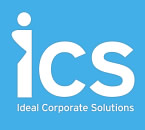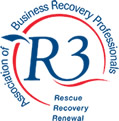Decision Making by the Forgotten Director-Shareholders
Apr 08, 2021

The forgotten 3 million
Over the past twelve months there have been many articles to highlight the extent of the number of business owners who essentially fall through the gaps of the Government’s generous support measures. There have been petitions which have gained support in the hundreds of thousands of signatories to trigger discussions by MPs and groups have been created to champion change.
Groups such as ForgottenLtd and Excluded UK have been active in this space, lobbying the Government to tailor support for such persons who fall through the gaps.
Small company director-shareholders
It is often common to see small business owners pay themselves a small director’s salary through the company’s PAYE with the balance of their remuneration from their company being paid by way of dividends from profits. However, as furlough is based on PAYE salary (and director-shareholders don’t qualify for SEISS grants), this means that director-shareholders who have been forced to close or operate at a reduced capacity have had their personal income impacted over the last twelve months – such income which is used to pay mortgages, household bills and living costs.
Advice for business owners in debt due to covid
The purpose of this article is not to discuss fairness of Government schemes or enter debate about the way director-shareholders are remunerated from their businesses in normal times, instead we consider whether the exclusion from covid support will impact decision making of director-shareholders of ailing businesses, who’s financial performance has been impacted by covid lockdowns and who are emerging from the last twelve months in a significantly worse state than it entered.
If you (or your clients) are a director-shareholder of a small limited company which has reduced cashflow due to covid, concerns over future viability and/or has issues such as: -
- Deferred VAT from 2020 due for repayment
- Built up rent arrears with the Landlord (protection from action is removed from 30 June)
- Took out a Bounce Back Loan or CBILS loan and repayments are due
- Converted a Bounce Back Loan to CBILS to secure further funds and repayments now due
- Used personal funds to prop up the business
- Had to use personal savings to support your family over the past 12 months
- Deferred payment of self-assessment tax due to covid
If any of the above points apply to you (or your clients) then it is worthwhile seeking professional advice from an insolvency practitioner to set out all available options, to better arm yourself when making decisions concerning the future of the business, which is intrinsically linked to personal financial health.
Covid debt burden
We are speaking with many director-shareholders who, after the last twelve months, now have a business which has built up covid debt which is burdening the company’s future. Over the coming months payments need to be included within cashflow forecasts to include repayment of Bounce Back Loans or CBILS Loans, deferred VAT, rent arrears (as protection from Landlord action ceases from 30 June 2021) as well as fund personal payments of self-assessment tax as the business is the only source of income to fund such payments, all against the backdrop of a poor year trading and concerns over when pre-pandemic capacity will be reached later this year or beyond.
Where we can add value to director-shareholder decision making is to critically review the business finances and provide a report detailing the options available from a restructuring and insolvency perspective, compared against the “do nothing” option and option to significantly extended payment terms in some instances over the next decade.
For some director-shareholders of distressed businesses in this position, the asset value of the business is less than the total amount of debt owed by the company. For some, this will be a key factor to consider in any decision making and what director-shareholders are prepared to live with over the next decade.
How does this tie in with forgotten or excluded director-shareholders?
Over the coming months we are anticipating an increase in enquiries from ailing businesses which are unable to service the debt levels, businesses which were perfectly profitable before March 2020 yet are now in a precarious financial state.
Even when formal insolvency is the correct choice for businesses in financial difficulty, director-shareholders will habitually try anything to avoid it. From pumping in personal funds to securing high interest business loans supported by personal guarantees as well as going without pay for extended periods, which all too often simply delays the inevitable of an insolvency process…which is typically far less painful than what is imagined and avoided at all costs, to the detriment of the director-shareholder’s personal financial position.
However, after being “forgotten” or “excluded” for the last twelve months whilst employees have been supported through Government funded furlough grants and the self-employed have benefitted from multiple non-repayable grants (which continue until September 2021), we expect to see this feature in director-shareholder’s decision making when considering options when it is clear formal insolvency is a viable choice and the main creditors are HMRC and the Government backed Bounce Back loans or CBILS loans.
Formal insolvency can provide a mechanism for the business to be saved and continued in a new vehicle (i.e. new limited company), free from the covid debt burden. Often director-shareholders who go through the insolvency process will use a new limited company to purchase the business and assets of the old company, with the process administered by a licensed and regulated insolvency practitioner to make sure the transaction is above board.
We expect to see fewer occasions were forgotten and excluded director-shareholders decide to put personal wealth at risk and instead we anticipate less reluctance to initiating insolvency proceedings when their limited companies start to experience cashflow difficulties, particularly in instances when the value of the business and assets is significantly lower than the covid debt burden.
Why is it important to take early professional advice?
All too often without proper advice, director-shareholders can make situations worse for themselves personally. For example, through using personal funds to inject into a failing business or take out business loans which are supported by personal guarantees. Both of which typically serve to postpone the inevitable.
Also to be mindful of, from 30 June 2021, the protection from Wrongful Trading action is removed meaning director-shareholders can be held personally liable once again should the company have continued to trade when it should have ceased.
Again, from 30 June 2021, the protection from creditors issuing Winding Up Petitions to enforce their unpaid debt is removed. There are various consequences once a Winding Up Petition is filed at Court and should be avoided wherever possible in favour of a more structured strategy for rescuing the business and achieving a better outcome for all concerned, including creditors.
Get in touch
If you would like to speak with one of the insolvency practitioners at ICS, here are their direct contact details, please feel free to get in touch anytime, wherever you are in the UK: -
Tom – 07795 196619 or tom.bowes@idealcs.co.uk
Andy – 07812 338252 or andrew.rosler@idealcs.co.uk
Links
The breakdown of the 3 million is detailed by Excluded UK in the following link who advise it is based on their own analysis in May to June 2020, the site also makes reference to other sources of data which confirm the accuracy of their research - https://www.excludeduk.org/three-million-breakdown.
ForgottenLtd - https://forgottenltd.com/
Excluded UK - https://www.excludeduk.org/excluded-uk-an-inclusive-alliance-for-the-excluded



